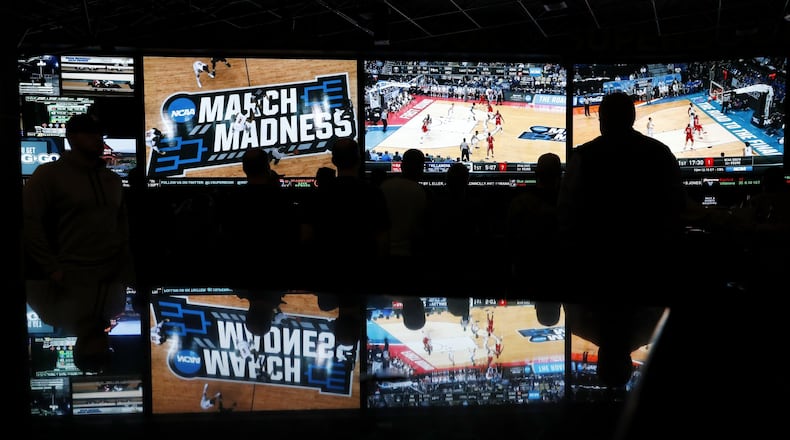A U.S. Supreme Court ruling on Monday that struck down a federal law limiting sports gambling could help bolster efforts in Georgia to bring in casinos and regulate daily fantasy sports in the state.
The Supreme Court ruled that it was unconstitutional to prohibit some states from allowing betting on sports, clearing the way for states that want to permit the activity and cash in on the lucrative industry.
“The legalization of sports gambling requires an important policy choice, but the choice is not ours to make,” Justice Samuel Alito wrote in the decision. “Congress can regulate sports gambling directly, but if it elects not to do so, each state is free to act on its own. Our job is to interpret the law Congress has enacted and decide whether it is consistent with the Constitution. ”
State Rep. Brett Harrell, R-Snellville, said he thinks the ruling helps make Georgia an attractive location to potential casino operators. He has supported allowing gaming in various forms in Georgia.
“I think it’s something that whatever type of gaming activity the citizenry participates in, be it daily fantasy sports, horse racing or casino gambling, the decision opens up all those options for the future potential location of casinos in Georgia,” he said.
Georgia House Economic Development and Tourism Chairman Ron Stephens, R-Savannah, said he hopes the Supreme Court ruling clears a path to bring luxury casinos to Georgia.
Stephens and other gaming supporters — including casino lobbyists — have spent the past few legislative sessions working to pass legislation that would let Georgians decide whether casinos should be allowed in the state. Polls have shown that Georgia voters favor the idea. Still, the legislation got no traction this year.
Republicans have majorities in both chambers but remain divided on the issue. All three of the state’s top leaders — Gov. Nathan Deal, Lt. Gov. Casey Cagle and House Speaker David Ralston, all Republicans — have expressed opposition to casino legislation.
Casino supporters thought last year that dedicating a portion of any gaming revenue to a needs-based scholarship would lure enough Democratic support to get a bill through.
Stephens said, if he is re-elected, he plans to bring the legislation back next year — this time proposing to dedicate funds to rural Georgia.
“Dedicating some of that money to get our rural hospitals back afoot should pique the interests of some of our representatives in our rural areas,” Stephens said.
The Supreme Court on Monday ruled 6-3 against the Professional and Amateur Sports Protection Act. The law, enacted in 1992, barred state-authorized sports gambling in all but the four states where the activity already was legal — Delaware, Montana, Nevada and Oregon.
A measure to regulate daily online fantasy sports programs caught a brief second wind before sputtering out at the end of Georgia's legislative session this year.
Georgians already participate in daily fantasy sports, but lawmakers have sought to regulate the activity to tax the businesses and ensure gaming companies are paying out winnings. Nineteen states have passed similar measures.
The bill made it to the Senate floor before members put the proposal on hold on the last day of the legislative session — the same thing that happened to the legislation the year before.
Daily fantasy sports supporters have maintained that the activity is not gambling, but a game of skill, and they believe the court’s ruling shouldn’t have an impact on their efforts either way. Opponents say the games are a way to further legalize gambling in Georgia.
The American Gaming Association, a trade association that represents the casino industry, estimates about $150 billion is wagered in illegal sports betting each year.
The ruling, in a case from New Jersey, creates an opening to bring an activity out of the shadows that many Americans already see as a mainstream hobby. A research firm estimated before the ruling that if the Supreme Court were to strike down the law, 32 states would likely offer sports betting within five years.
About the Author
Keep Reading
The Latest
Featured




